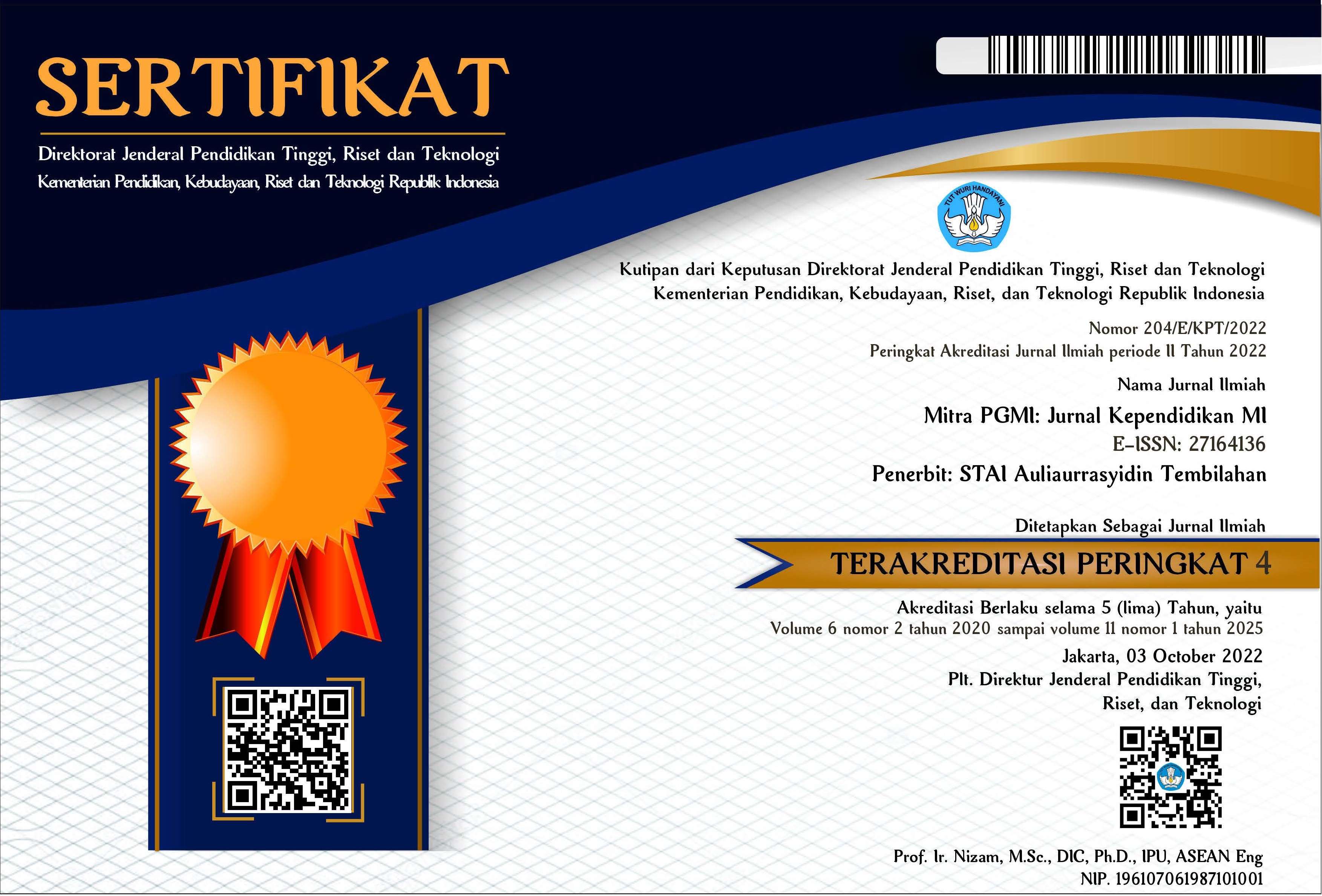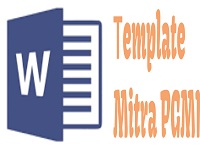Pendidikan Karakter Siswa Kelas IV melalui Pembelajaran Bahasa Indonesia di SDN 19 Meulaboh
DOI:
https://doi.org/10.46963/mpgmi.v8i2.507Keywords:
Language Learning, Character BuildingAbstract
The Value of Character Education in Indonesian Language Learning for Fourth Grade Students at SD N 19 Meulaboh. This study aims to determine the value of character education contained in the Indonesian language learning process for fourth grade students at SD N 19 Meulaboh. This research includes field research. The approach used is descriptive qualitative, data collection techniques using the method of observation and documentation. The focus of this research is the value of character education contained in learning Indonesian in fourth grade students at SD N 19 Meulaboh. The results showed that the planning made by the teacher consisted of initial activities, core activities, and closing activities. The implementation of character education at SD N 19 Meulaboh has not been maximized. The results of the study show that the 18 character values found in learning Indonesian for class IV are religious, honest, tolerance, disciplined, hard work, creative, independent, democratic, curiosity, national spirit, love for the homeland, respect for achievement, friendly/communicative, love peace, love to read., care for the environment, responsibility, and care about social.
Downloads
References
Albertus. (2010). Pendidikan Karakter Strategi Mendidik Anak di Zaman Global. Jakarta: Pt Grafindo.
Astutie, T. (2015). Peranan Pembelajaran Bahasa dalam Pembentukan Karakter Siswa. Prosiding Seminar Nasional Bulan Bahasa. UNIB, 331.
Depdiknas. (2003, Mei 26). Sistem Pendidikan Nasioal. Retrieved Mei 22, 2022, from www.Depdiknas.go.id
Devianty, R. (2017). Peran Bahasa Indonesia dan Bahasa Daerah dalam Pendidikan Karakter. Jurnal Pendidikan Ilmu Sosial dan Budaya, 2.
Dharma, K. (2010). Pendidikan Karakter Kajian Teori dan Praktek di Sekolah. Bandung: PT Remaja Rosdakarya.
Gunawan, H. (2012). Pendidikan Karakter Konsep dan Implementasi. Bandung: Alfabeta.
Isjoni. (2009). Pembelajran Kooperatif: Meningkatkan Kecerdasan Komunikasi antar Peserta Didik. Yogyakarta: Pustaka Pelajar.
Khan, Y. (2010). Pendidikan Karakter Berbasis Potensi Diri Mendongkrak Kualitas Pendidikan. Yogyakarta: Pelangi Publishing.
Koesoema, D. (2007). Pendidikan Karakter : Strategi Mendidik Anak di Zaman Modern. Jakarta: Grafindo.
M, S., & Heriyati. (2017). Konsep dan Model Pendidikan Karakter. Bandung: PT Remaja Rosdakarya.
Maman, S. (2010). Pendidikan Karakter Melalui Pembelajaran Sains. Jurnal Ilmiah Pendidikan XXIX, 112.
Moleong, L. J. (2002). Metodologi Penelitian Kualitatif. Bandung: PT Remaja Rosdakarya.
Mu'in, F. (2011). Pendidikan Karakter Konstruks Teoritik dan Praktik. Yogyakarta: Ar-ruz Media.
Muslich, M. (2011). Pendidikan Karakter Menjawab Tantangan Krisi Multidimensial. Jakarta: PT Bumi Aksara.
Pidarta, M. (1997). Landasan Kependidikan Stimulus Ilmu Pendidikan Bercorak Indonesia. Jakarta: PT Rineka Cipta.
Slamet. (2007). Dasar-dasar Pembelajaran Bahasa dan Sastra Indonesia di Sekolah Dasar. Surakarta: LPP UNS dan UPT.
Wahyuni, S. (2010). Perencanaan Pembelajaran Bahasa Berkarakter. Bandung: PT Rafika Aditama.
Downloads
Published
Issue
Section
License
Copyright (c) 2022 Intan Permata Murni

This work is licensed under a Creative Commons Attribution-ShareAlike 4.0 International License.
Authors who publish with this journal agree to the following terms:
1. Copyright on any article is retained by the author(s).
2. The author grants the journal, right of first publication with the work simultaneously licensed under a Creative Commons Attribution shareAlike 4.0 International License that allows others to share the work with an acknowledgment of the work’s authorship and initial publication in this journal.
3. Authors are able to enter into separate, additional contractual arrangements for the non-exclusive distribution of the journal’s published version of the work (e.g., post it to an institutional repository or publish it in a book), with an acknowledgment of its initial publication in this journal.
4. Authors are permitted and encouraged to post their work online (e.g., in institutional repositories or on their website) prior to and during the submission process, as it can lead to productive exchanges, as well as earlier and greater citation of published work.
5. The article and any associated published material is distributed under the Creative Commons Attribution-ShareAlike 4.0 International License








2.png)


